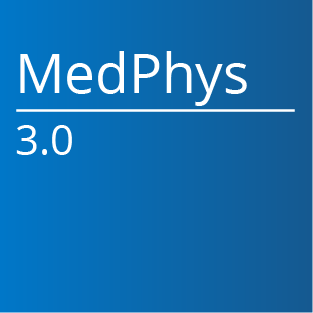Career Advice:
A runner's guide to career success
Staying motivated, overcoming obstacles, and knowing your limits are just some lessons that can be applied to your professional aspirations.
By: Alaina G. Levine
I’m a runner. I run on a track, on treadmills, and sometimes on hills. I participate in races of various lengths. Sometimes my runs are happy endeavors that involve listening to music and relishing the endorphins flooding my system. Other times, I run even though I’m tired, hungry, annoyed, unmotivated, angry, or generally not in the mood at all to propel my body forward when there are endless episodes of Mr. Robot and cupcakes to binge on instead.
On the days when my runs and races bring me joy, I have noted that I am at my most creative. In fact, I have come up with many Physics Today columns while I’ve been in motion and sweaty. And it is during those times of endorphin-induced imagination fests that I have come to realize the parallels between running and nurturing and growing your career.
Here are seven running-based lessons about career advancement:
Know that you do this for yourself. As I approach a hill, I don’t complain; rather, I remind myself that I chose to be here. When we face challenges and hills in our jobs or careers, we should remind ourselves that we chose our profession. Something, perhaps multiple things, compels us to stay. On the hardest days, when the hills seem their highest, do yourself a favor and remember that you are electing to conquer that incline. You are in training for your next challenge, job, or career pivot.
Race only with yourself. There are always people running in front of me who seem to move like subatomic particles in an accelerator. They finish the race in mere femtoseconds with barely a bead of sweat shed, whereas I stumble across the finish line in what seems to be petahours. I have learned not to care about those other runners. Whether it takes me more effort and time than it takes others is not my concern. I focus only on my own performance and abilities. After all, those are the only parameters I can control. Any other mind-set can lead to a mental breakdown―which I can’t afford, in a race or in life.
Staying in one place is an illusion. When I run on a treadmill, I put in a lot of effort just to stay in the same place. My total displacement over an entire workout is zero. Yet in the end I have actually run 1, 2, or―gasp―even 3 miles that day. I hear from a lot of professionals, particularly those early in their careers, who think that they are not moving forward because they have been in the same job or team or organization over a period of time. They feel like they are on a treadmill to nowhere. But the reality is that staying in one place career-wise for a period of time is not a road to nowhere. You are indeed progressing. You are building your skills and abilities and strengthening your physical or mental muscles to be able to handle harder challenges down the road. You do not have to literally move forward to move forward.
Remember that you have the skills. I would have to be crazy to run a half marathon with no training. I wouldn’t put myself in the dangerous position of entering a race that I didn’t think I could do. Similarly, your organization would not have hired you to do your job if the powers that be didn’t think you could do it. That would be a dangerous move on their part, risking loss of money, time, and, depending on the industry and role, even equipment and lives. They have invested in you because they have faith and evidence that you can do it. And you should find the same evidence in your own record of achievements so you, too, can have faith that you can do it.
Know your limits. Some days are right for powering through the hills. Other days, you may need to walk or crawl up those hills. In my careers and jobs, there are days when I physically and mentally can push myself to face a particularly hard challenge. Then there are days when I have to keep to a little easier schedule and insert breaks among my tasks. It doesn’t mean I have given up. But I do have to pay attention to what I physically or mentally can achieve in that moment. Similarly, if I have been working on a project or a task for a long time and I need to take a break, I will. Even a break of a couple of minutes can make a difference in my performance. It also ensures that I don’t put my physical, mental, or professional health at risk.
Watch out for the litter left by those ahead of you. At a race, runners grab cups of water or Gatorade, take a galactic-size gulp, and throw the vessels on the ground. If you aren’t careful, you can trip on all that mess. People who have moved along the professional path before you also leave things behind, and they are not always gemstones and gold. Sometimes people deposit their regrets, frustration, and other negative emotions on the ground as they advance. You can’t afford to be tripped up by other people’s negative baggage. So pay attention to potential garbage in the road, and hop over it or run around it.
Never quit. I was running a 5K race when I looked up and noticed that the man in front of me was wearing a T-shirt with the phrase “Don’t quit” emblazoned across the back. I followed him the whole race. After I crossed that finish line, I found him by the bananas and thanked him for helping to motivate me. Then I thought about what I would do next. Because there is always another race to run, another project to pursue, another job to chase. I will be ready for them. And so will you.
Alaina G. Levine is a science and engineering writer, career consultant, and professional speaker and comedian. She is the author of Networking for Nerds , which was named by Physics Today as one of the top five books of 2015. She can be reached through her website www.alainalevine.com or on Twitter at @AlainaGLevine.



















